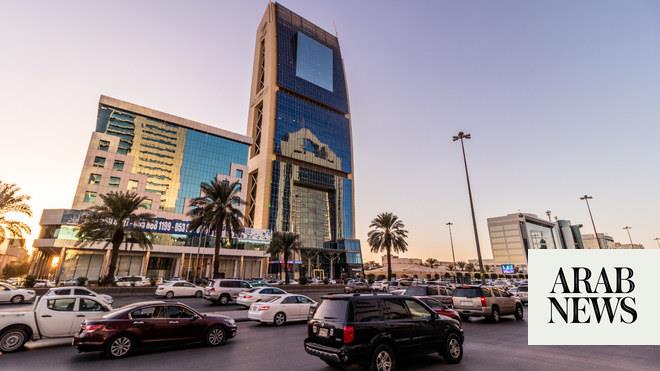
RIYADH: Traffic congestion in Riyadh has been of serious concern for residents in recent years, with many seeking stress-free and inexpensive alternatives that would get them to work and school.
It appears some residents are turning to walking or cycling, especially over short distances. Carpooling and ride-sharing are also popular and cheaper alternatives.
Public transportation, which includes buses and trains, has also become another cost-effective solution for those who do not want to drive.
Fatimah Al-Hajj, who lives in the north of Riyadh and takes a bus to work every day, said: “The bus is so inexpensive … it is only SR140 ($37). I simply save money by purchasing the monthly ticket, and it is so much better than having to deal with having to drive all the way to work when my work is in the middle of the city.”
Resident Turki Al-Shehri uses a car and scooter to get to work and back. He drives to a location where he can park, and then uses a scooter for the rest of the commute.
“As a person working in Digital City, parking is very hard to get due to limited capacity, not to mention ongoing traffic from all around. That’s why I figured to myself, I can either come by a motorcycle, which I don’t have a license for, or I can ride my electric scooter and commute from a nearby point, and that’s what I did.
“I park my car in a relatively nearby spot by the office but away from the traffic jam I face every day when leaving the office and heading back home,” Al-Shehri said, adding that he had cut his time for the commute from 65 to 25 minutes.
While there are advantages to these alternatives, there are also some drawbacks. Walking, cycling, or riding a scooter are not practical for long distances or in extreme weather conditions.
Also, carpooling and ridesharing require coordination with others and may not be convenient for everyone. Public transportation may not be efficient or convenient for all areas of the city. However, these alternatives are still viable solutions for those who want to avoid the bumper-to-bumper commute in Riyadh.
According to Ralph Wilczynski, senior traffic engineer at SETS Engineering Consultants in Saudi Arabia, the main reason for traffic issues in Riyadh is the lack of options.
“For decades, we’ve only had one choice of transportation: a car. We cannot function without a car. We use it daily for everything. Even if we want to go for a walk we need to drive first. As with various car-first cities, Riyadh was built for cars,” he said.
He said holistic solutions are required.
“What we really need is other forms of transportation: trains, trams, buses at the city-wide level, to mini parks, wide shaded footpaths, safe pedestrian crossings, cycle/scooter paths/tracks, autonomous vehicles at the local community’s level, etc.
“All these means of transportation could form a citywide network woven into the fabric of Riyadh, which will allow us to change our daily habits and the way we commute.”
The great news is that authorities in Riyadh have made clear their plans to move in this direction.
The city’s first metro and bus lines have been built and the network will be operational soon.
The Green Riyadh project is bringing parks, gardens, and more walkable neighborhoods to the city.
The Sports Boulevard and King Salman Park projects are creating walking-friendly spaces dedicated to the residents of the city.
“Of course, more needs to be done in the years ahead as the city grows at an unprecedented pace. With the Riyadh Expo 2030 and the 2034 FIFA World Cup in the near future, Riyadh will move confidently to ensure a world class public transport system in the capital, serving both residents and visitors.”
On May 21, Saudi Arabia’s Transport and Logistics Services Minister Saleh Al-Jasser said new technologies and legislation were being introduced to reduce traffic jams in the country.
And for Riyadh alone, $18.6 billion has been allocated to upgrade the city’s road network.












